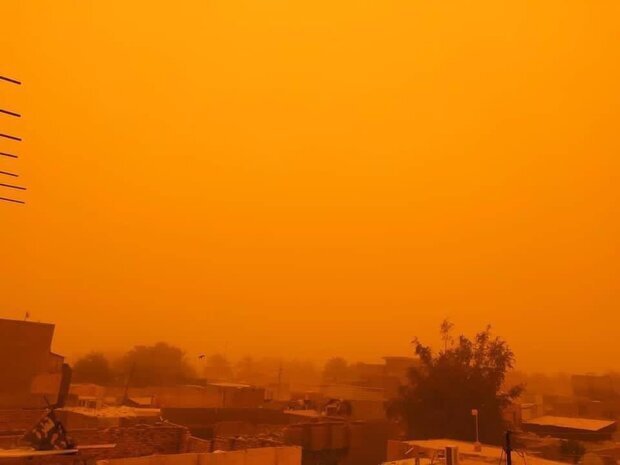Iran ready to cooperate with other countries on tackling SDSs

TEHRAN – An official at the Department of Environment has said the country is prepared to cooperate with other countries in dealing with sand and dust storms.
Iraj Heshmati, the DOE deputy head, made the announcement on Wednesday, referring to the visit of a delegation to Iraq on August 1 to follow up on previous agreements in this regard.
Iranian and Iraqi officials conferred on the ways to tackle sand and dust storms, he said, underlining that Iran is also ready to take joint measures with other countries as well.
Ali-Mohammad Tahmasbi, the secretary of the national policymaking headquarters for dealing with sand and dust storms, who led the delegation, said the visit aimed to implement the sub-regional action plan, form a regional technical working group, and carry out joint projects to curb hotspots of sand and dust storm, IRNA reported.
Meanwhile, on August 18, Iran and Turkmenistan emphasized the need to cooperate in tackling sand and dust storms originating from the Karakum Desert.
Expert teams from both sides will investigate the origin of the dust in Turkmenistan that affects the northeastern part of Iran.
According to studies, eight large sand and dust storm hotspots stretching to 270 million hectares in neighboring and Persian Gulf countries are affecting Iran.
Regional maps show that Saudi Arabia produces the highest level of particulate matter, followed by Iraq, Syria, Kuwait, and the UAE, respectively.
The internal dust sources are estimated at 34.6 million hectares, generating an average amount of 4.22 million tons of dust per year, about 1.460 million hectares are dried wetlands.
To deal with sand and dust storms, positive measures have been taken inside the country. A ten-year plan has been prepared to curb internal sources of sand and dust storms.
In July 2022, Tehran played host to a conference of ministers and officials from 11 countries, aiming to boost cooperation for resolving extant environmental problems, especially sand and dust storms.
Environment ministers of Iraq, Armenia, the United Arab Emirates, Oman, Syria, and Qatar, as well as deputy ministers of Azerbaijan and Turkmenistan along with delegations from Turkey and Uzbekistan, participated in the event which was held with the theme of “Environmental Cooperation for a Better Future.”
The SDS phenomenon has been plaguing the country for several years and has caused problems in many provinces. According to experts, natural and human factors are involved in the occurrence and severity of this phenomenon which is mainly caused by excessive consumption of water and drying up reservoirs.
ZM/MG
